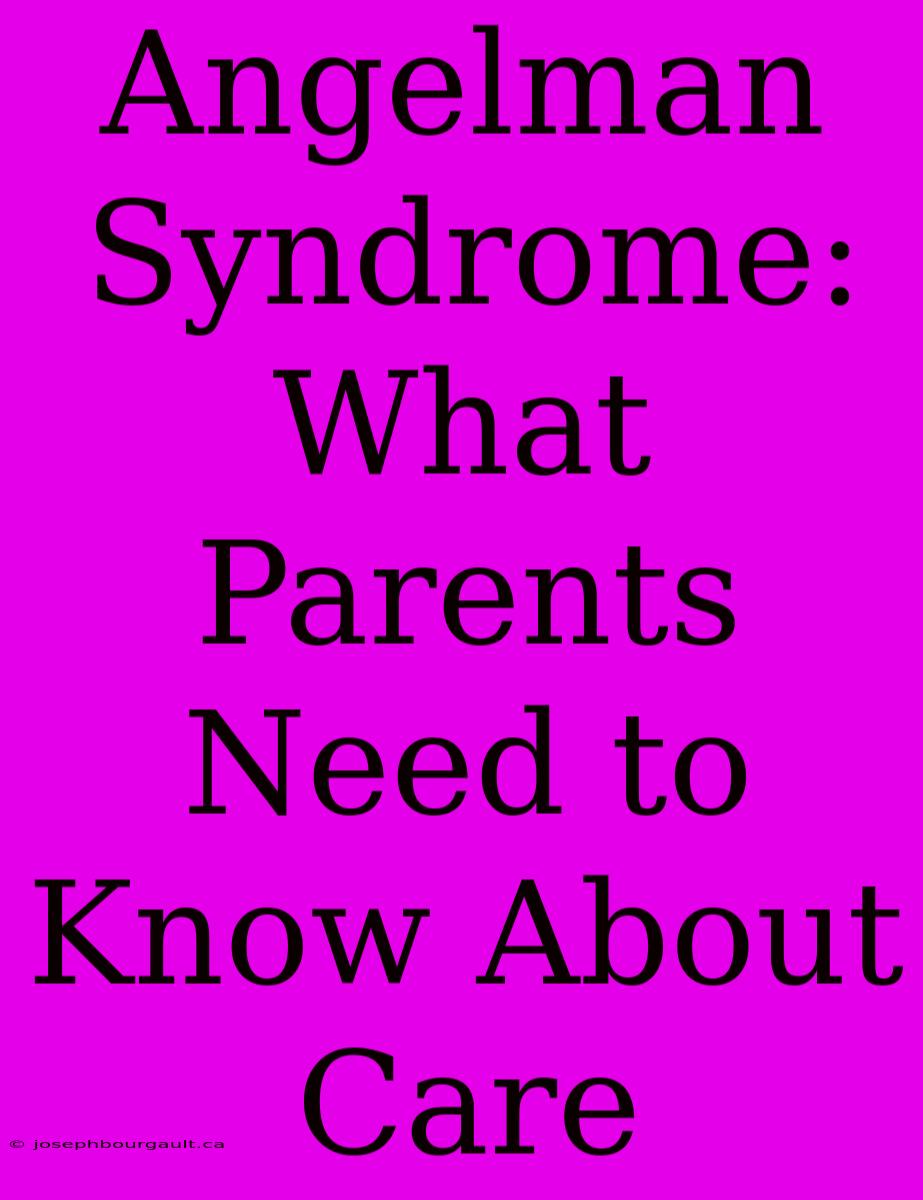Angelman Syndrome: A Guide for Parents
Angelman syndrome (AS) is a rare genetic disorder that affects the nervous system. It is characterized by developmental delays, intellectual disability, speech impairment, and a happy disposition. While there is no cure for AS, early intervention and support can significantly improve the quality of life for individuals with the condition. This article will guide parents through the essentials of understanding and caring for their child with Angelman syndrome.
Understanding the Basics
What causes AS?
AS is caused by a missing or defective gene called UBE3A. This gene is responsible for producing a protein that is essential for the proper development of the nervous system.
Who is at risk for AS?
While AS is rare, anyone can have a child with the condition. The risk factors include:
- Maternal age: Older mothers have a slightly increased risk.
- Family history: If a parent or close relative has AS, the risk is higher.
What are the symptoms of AS?
The symptoms of AS vary in severity, but some common features include:
- Developmental delays: Children with AS often have significant delays in reaching developmental milestones, such as walking, talking, and sitting.
- Intellectual disability: AS affects cognitive abilities, leading to varying degrees of intellectual disability.
- Speech impairment: Most individuals with AS have difficulty speaking and may use a limited number of words.
- Characteristic behavior: Children with AS often display a happy disposition, easily excited, and prone to laughter.
- Movement and balance issues: Children may have unsteady gait, walking on their toes, and difficulty with coordination.
- Seizures: Seizures are common in individuals with AS.
- Sleeping problems: Many children with AS experience sleep disturbances.
Providing Support and Care
Early Intervention:
Early intervention is crucial for children with AS. By starting therapy early, parents can help their child reach their full potential. Common therapies include:
- Physical therapy: To improve motor skills and coordination.
- Occupational therapy: To develop fine motor skills and self-care abilities.
- Speech therapy: To enhance communication skills and language development.
- Behavioral therapy: To address challenging behaviors and promote positive interactions.
- Special education: To provide tailored learning experiences and support.
Managing Challenges:
Living with AS presents unique challenges for both the individual and their family. It is important to seek out support and resources:
- Connect with other families: Sharing experiences with other parents of children with AS can provide invaluable support and advice.
- Join support groups: Support groups can offer a sense of community and shared understanding.
- Seek professional guidance: Therapists, doctors, and educators can provide personalized guidance and support.
- Develop a strong support network: Lean on family and friends for emotional and practical support.
Focusing on Strengths:
Despite the challenges, children with AS have unique strengths and abilities.
- Strong social skills: They often enjoy interacting with others and are very affectionate.
- Positive disposition: Their happy and outgoing personalities can be a source of joy and inspiration.
- Creative talents: Many individuals with AS have artistic or musical abilities.
Hope for the Future:
While AS is a lifelong condition, research is ongoing to understand its complexities better. With proper care, early intervention, and the unwavering support of their families, individuals with AS can lead meaningful and fulfilling lives.
Remember:
- Early intervention is key.
- Seek support from professionals and other families.
- Celebrate your child's strengths and abilities.
- Advocate for your child's needs.
With patience, understanding, and love, parents can help their child with AS thrive and reach their full potential.

